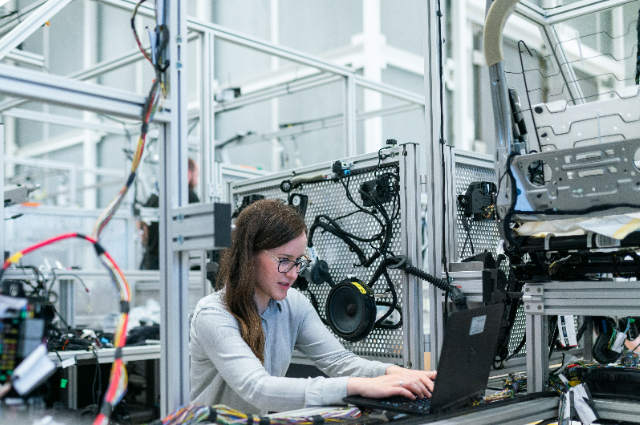
Photo by ThisisEngineering RAEng on Unsplash
Introduction
In today's rapidly evolving world, technology and innovation have become the driving forces behind societal transformation, economic growth, and improved quality of life. From groundbreaking scientific discoveries to revolutionary inventions, the marriage of technology and innovation has revolutionized industries, empowered individuals, and propelled us into the digital age. This article explores the profound impact of technology and innovation on various sectors and examines how they continue to shape our present and future.
Enhancing Communication and Connectivity
Technology has completely transformed the way we communicate and connect with one another. The advent of the internet, mobile devices, and social media platforms has bridged geographical distances, enabling instant communication and fostering global connectivity. People from all corners of the world can now share information, ideas, and experiences in real-time, breaking down barriers and fostering a sense of global community.
Moreover, emerging technologies such as 5G networks, the Internet of Things (IoT), and artificial intelligence (AI) are revolutionizing connectivity by enabling faster and more efficient communication between devices. This connectivity paves the way for the development of smart cities, autonomous vehicles, and interconnected ecosystems that improve efficiency, sustainability, and overall quality of life.
Transforming Industries and Workforce
Technology and innovation have disrupted traditional industries, transforming the way we work and conduct business. Automation, robotics, and AI are revolutionizing manufacturing, logistics, and service sectors, streamlining processes, and increasing productivity. While concerns about job displacement exist, technological advancements have also created new avenues for employment and entrepreneurship. The rise of the gig economy, remote work, and digital platforms has provided individuals with increased flexibility and opportunities to leverage their skills in new ways.
Innovation-driven sectors such as biotechnology, renewable energy, and nanotechnology are tackling global challenges, ranging from healthcare to climate change. Breakthroughs in these areas are creating new industries, generating jobs, and offering solutions to some of the world's most pressing problems. As technology continues to evolve, it will be crucial to equip the workforce with the necessary skills to adapt and thrive in the digital era.
Revolutionizing Healthcare and Education
Technology and innovation are revolutionizing the healthcare and education sectors, empowering individuals and driving advancements in these critical fields. In healthcare, advancements in medical imaging, wearable devices, and telemedicine are enhancing patient care, improving diagnostics, and expanding access to medical services in remote areas. Precision medicine, enabled by genomics and personalized therapies, is transforming treatment approaches, leading to more effective and targeted interventions.
Likewise, in education, technology has transformed the learning experience, making education more accessible, interactive, and personalized. Online platforms, educational apps, and virtual reality (VR) simulations offer new opportunities for distance learning, skill development, and immersive educational experiences. Technology also enables data-driven insights into student performance, facilitating personalized teaching methodologies and identifying areas of improvement.
Fostering Sustainable Development
Innovation and technology play a vital role in addressing the global challenges of sustainable development and environmental conservation. Renewable energy technologies, such as solar and wind power, are rapidly replacing fossil fuels, reducing carbon emissions, and mitigating climate change. Smart grids and energy-efficient solutions are optimizing energy consumption and promoting sustainable practices.
Additionally, emerging technologies are enabling sustainable agriculture, water management, and waste reduction. Precision farming techniques, sensor-based irrigation systems, and AI-powered analytics are optimizing crop yields, conserving resources, and reducing environmental impact. Circular economy models, supported by advanced recycling technologies and sustainable material development, are reshaping traditional industries and minimizing waste generation.
Conclusion
Technology and innovation have become inseparable companions in our journey towards progress. They have transformed the way we live, work, and interact with the world around us. The potential of emerging technologies, such as AI, blockchain,
and quantum computing, is yet to be fully realized, promising further advancements and groundbreaking innovations.
However, as we embrace the opportunities presented by technology and innovation, it is crucial to address ethical considerations, privacy concerns, and ensure equitable access to these transformative tools. Collaboration between governments, businesses, and society at large is essential to harness the full potential of technology and innovation while minimizing the risks.
By fostering a culture of curiosity, creativity, and openness to change, we can unlock the immense power of technology and innovation to build a brighter, more inclusive future for all.
